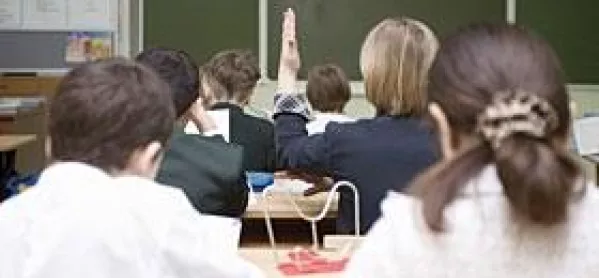Early honeymoon, then pupils switch off

Original paper headline: Early honeymoon, then pupils switch off, study finds Many pupils are turned off secondary school within just six months of arriving - and there may be little schools can do about it. These startling findings from an extensive study by St Andrews University, which tracked 400 pupils from 19 primaries in Fife as they moved into four separate secondaries, will reinforce the continuing concerns about how to motivate youngsters and raise their attainment after they transfer from primary. The most recent pronouncement, by HMIE in its Improving Scottish Education review of 2005-08, concluded that “S1-2 remains the phase of education that adds least value to the progress and achievements of many young people”. The St Andrews study looked at five indicators to check on how pupils were progressing and performing - school commitment, school belonging, school participation, self-esteem and well-being. It then applied nearly 20 factors, directly or indirectly related to the school, ranging from hobbies to happiness, to check on the impact they made on the five outcomes. This was done four times - twice in P7 and twice in S1. According to Vivienne Horobin, who conducted the research, “the most striking finding was that, contrary to expectations, children recorded an improvement in school commitment, school belonging, self-esteem and well- being immediately after moving to secondary school. Only school participation, describing involvement in class activities as well as in extra-curricular activities, showed a sharp decline at this time”. But after the initial “honeymoon period” immediately after the pupils moved to secondary school, their attitudes began to deteriorate significantly. And the research found that, while the actual process of transition was well managed, pupils began to be heavily affected very quickly by their family backgrounds and sense of worth. These are factors largely beyond the school’s control. The study notes, for example, that participation in school activities is strongly influenced by personal qualities, so that those who are motivated, academically able, resilient and aspirational do well. But these attributes make less of an impact as pupils move into the later stages of S1, the study found. Other findings underline the complex inter-relationship of influences on 13 and 14-year-olds, such as the fact that children with siblings tend to have higher self-esteem but that this diminishes in S1 classes which have high numbers of pupils from deprived areas. Dr Horobin called for induction programmes to prepare S1 pupils for the new teaching methods they might encounter. Other initiatives, such as developing their coping skills and resilience, should also be tried out, she added, perhaps even in primary school.The S1-2 story
Keep reading for just £1 per month
You've reached your limit of free articles this month. Subscribe for £1 per month for three months and get:
- Unlimited access to all Tes magazine content
- Exclusive subscriber-only stories
- Award-winning email newsletters

